The 50 Blue Whale Challenges And Why Ending Suicide? Full report about the game
The 50 Blue Whale Challenges And Why Ending Suicide?
Full report about the game
Most of the world's cities are gripped by a real scare from the malicious "Blue Whale" game for children and teenagers, which leads them to commit suicide in a very malignant mental mess. Votes are rising again to demand that the parties take decisive action in this regard. Here is the almost frightening file of the Blue Whale game that drains the lives of our children.
Blue Whale is a game on the Internet, unfortunately it is available in most countries. The game consists of challenges for 50 days. In the final challenge the player is asked to commit suicide. The term "blue whale" comes from the phenomenon of whales The beach, which is linked to the idea of suicide, is suspected to be the origin of a number of suicide incidents, particularly among teenagers.
The Blue Whale game in Russia began in 2013 with the F57 as one of the names of the so-called "death group" from within the social network "Vontacti", allegedly causing the first suicide in 2015, said Philip Bodkin, a former psychology student who was expelled From his university to his invention of the game n his goal is to "clean up" society by pushing people to suicide which he considered to be of no value.
The Blue Whale game in Russia in 2016 was widely used among teenagers after the press drew attention to it through an article linking many suicide victims to the Blue Whale, creating a wave of moral panic in Russia. Budkin was later arrested and convicted of incitement At least 16 teenage girls commit suicide, resulting in Russian legislation to prevent suicide and renewed global concern about the blue whale phenomenon.
The origin of the game
It is difficult to determine the origin of this game, but it began to cover the media in May 2016 by an article appeared in the Russian newspaper "Novia Gazeta" suspected of a relationship between dozens of teenage suicide incidents that occurred in Russia between November 2015 and April 2016 and the "Blue Whale Challenge" .
According to the French newspaper Le Monde, the instigators of this game are likely to be three young Russians: Philippe Budkin (also called Philippe Fox), Philip Les, in addition to Kitov; the first was arrested and put on trial in November 2016 for incitement to commit suicide In July 2017 with three years of imprisonment after his trial in Siberia.
The principle of the game
The "Blue Whale" has taken its name from the many observations of whaling on the beaches, and some say that these whales are "committing suicide" voluntarily but the origin of this phenomenon is still controversial.
The "Blue Whale" game consists of a series of 50 challenges presented to the player by the Guardian (meaning "Guardian or Guardian"), which needs to be connected over the Internet. The player should send an image or video showing the completion of the task in order to proceed to the next challenge. Although some challenges are not as harmful as drawing a whale on paper or listening to sad music at night, others raise a lot of anxiety and are not benign, calling for beatings and scratching. Worst of all is the last challenge to suicide.
The game is based on the relationship between competitors (also called players, participants or administrators), which involves a series of duties given by supervisors urging players to complete them, especially since there is one task per day, but some of these tasks involve On the distortion and abuse of the self, and it is noted that some tasks given daily to a group of users are not given to others only after two or three days, and in conclusion the last task is given and asks the challenger suicidal, and vary tasks between good and bad and permissible and dangerous and other instructions that vary To end the application Suicide.
To do list
- Carve the F57 or draw a blue whale by the person or arm using a sharp tool and then send an image to the official to make sure that the person has entered the game
- Wake up at 4:20 am and watch a video with strange music leaving the player in a bleak state.
- Make longitudinal wounds on the opponent's arm.
- Draw a whale on a piece of paper.
- Write "Yes" on the same person's leg if he is ready to be a whale, otherwise the same person should cut several pieces.
- Secret task (written in code).
- Scratch (message) on the person's arm.
- Write an online case about being a whale.
- Overcoming fear.
- Wake up at 4:20 am and stand on the roof.
- Carving a whale by a private person.
- Watch scary videos every day.
- Listen to music sent by the official.
- Cut the lips.
- Knock the person's arm with a special needle.
- Harm yourself or try to make her sick.
- Go to the ceiling and stand on the ledge.
- Stand on a bridge.
- Climbing a Crane .. In this step a believer is checked in one way or another to see if the participant is trustworthy.

- Talk to "Whale" on Skype.
- Sitting on the roof with the need to leave the legs lengthened from the edge.
- Other encrypted function.
- Secret mission.
- Meeting with the "whale"
- The player is appointed on the day of death of the person.
- Visit the railway.
- Do not talk to anyone throughout the day.
- Give a right about being a whale.
- After these steps come 30-49 steps involving watching horror movies and listening to the music chosen by the administrator, and talking to the whale.
- The last task is to commit suicide by jumping from a building or by stabbing a knife.
Reported cases :
Tunisia
Until March 12, 2018, seven children from Tunisia committed suicide as a result of the game. The primary court in Sousse ruled that the game "Blue Whale" and "Mary's Game" should be banned in Tunisia and the Tunisian Internet Agency was charged with taking the necessary measures.
Bangladesh
Several news reports and media outlets in Bangladesh have reported suicide attempts related to the game. A teenage girl had committed suicide, allegedly because of her addiction to the Blue Whale game in October 2017. But what made the game more popular in Bangladesh was the police arresting a college student because of suspicion of playing the game, But this situation has not been officially confirmed.
Brazil
Several news reports in the Brazilian media linked self-abuse and attempted suicide to children playing the Blue Whale game. The police have conducted a number of investigations, but no official case has been confirmed so far. Eight Brazilians tried to commit suicide after they had offered to torture themselves, so the incident was suspected to be linked to the game.
Bulgaria
The first news about the Blue Whale game in Bulgaria appeared in mid-February 2017. A safer Internet organization had published a report demanding that users not obey the rumors, that the subject was exaggerated and not worth all the hype, and asked website owners to avoid publishing False information so as not to create a wave of anxiety and panic among parents. Two groups were opened in Facebook to discuss the issue of this game and try to pay phone users to try it, but soon the Bulgarian authorities reported and deleted, and spread the news of the game and what it caused in two weeks, prompting the Bulgarian press to move as published more reports on this game, Just a trick the goal behind them is not promotion.
India
During 2017, Indian media reported that several child suicide cases were caused by the "Blue Whale" game. The Indian government had pressured the Ministry of Information Technology and Electronics, which in turn pressed and asked a number of Internet companies (including Google, Facebook and Yahoo) to remove all Links that direct users to download the game. Prompting some commentators and bloggers to accuse the government of creating panic among citizens. The second reason for death in India is suicide, according to a 2012 report. The Supreme Court has asked India's central government to ban all sites that may reach the Blue Whale game.
Italia
The Blue Whale coverage began on June 3, 2016, with La Stampa, which described the game as a challenge and in the same way a "bad joke". After that, the site of BUTAC published a report confirming the absence of the game mainly, and on 14 May 2017, Italy Channel 1 published a detailed report on the game confirmed that it exists. A number of reports confirmed that several cases of suicides were caused by the game, especially the case of a teenage girl from Livorno. In the wake of this, the coverage of the media increased, and there were many platforms that emphasized the existence and seriousness of the game. Google in terms of the number of search results for the game. On May 22, 2017, Italian police announced that they had received 40 warnings about the game, and then increased the number of alarms to 70 within 24 hours only.
Russia
In March 2017, the authorities in Russia investigated nearly 130 separate cases involving questionable cases. In February, a 15-year-old boy threw himself out of a 14-storey building in a Siberian building in Irkutsk after completion Of his 50 assignments, and his 16-year-old colleague did the same, leaving messages on their social networking pages that suicide had something to do with the game. In the same month, another 15-year-old also threw himself out of a high-rise apartment in the city of Krasnoyarsk, but this time he did not die, but suffered critical injuries and injuries that led to his hospitalization.
On 11 May 2017, Russian media reported that Philip Budkin was wanted for "inciting teenagers to commit suicide." Bodkin described his victims as "biological waste" claiming he was trying to "cleanse society". He was later arrested and incarcerated in St. Petersburg prison for numerous charges, including "inciting at least 16 girls to kill themselves."
On May 26, 2017, the State Duma (Russian parliament) passed a bill giving the court the right to charge a criminal charge for anyone trying to promote suicide or creating tools to help, after 130 suspected deaths linked to the Blue Whale Challenge . On 7 June 2017, President Putin signed the law imposing criminal sanctions on anyone who incites minors to commit suicide.
Algeria
On November 17, 2017, an 11-year-old child was killed in the state of Setif, east of Algeria. The results of the investigation confirmed that the cause of the suicide was due to the blue whale game, which he spent most of his time in for a month. On December 8, the Taliban committed suicide in a secondary school in the state of Bejaia after using the game Blue Whale. This game is also the origin of the death of 7 young people in Algeria in 2017.
France
In France, some cases that may be related to the Blue Whale have been reported and the LCI channel on its website has also reported the attempted suicide of four girls from Ba-de-Calais because of the game. La Voix du Nord earlier published two girls' The Blue Whale game, plus 12 students at a school in Finistère.
To counter the threat posed by the "Blue Whale" game, on March 6, 2017, French police published a letter on their Twitter account to alert teenagers and their parents that suicide incitement was punishable by 5 years in prison and a fine of 75,000 euros. Another warning message was published a few days later with the same message: "No challenge worth risking life for." Other messages have been posted by local police and gendarmerie forces in areas where potential victims are present.
The French Ministry of National Education also reacted by sending a warning message to all deans of academic academies. She has also sent a message to teachers through the Eduscol Portal to recommend and be vigilant about this game that can attract young people and affect their identity.
Morocco, West, sunset
Recently, the game "Blue Whale" has spread in Morocco, especially among teenagers. The most prominent case is the death of a teenager in the southern Moroccan city of Agadir. After carrying out the challenges of the game, he committed suicide by throwing himself from the roof of the building where he lives, in response to the latest challenge in the game.
Egypt
The suicide of the son of the Egyptian parliamentarian Hamdi al-Fakharani, due to the game "The Blue Whale," drew the attention of the media to this game, while some other cases appeared in the Egyptian Parliament to discuss enacting legislation to punish those involved in this type of cybercrime.
Reactions to social networks
Social networks are the main platform in which the Blue Whale is played, so some of these networks have taken measures to reduce the spread of the dangers of this game and to educate adolescents, especially in order to avoid falling into the trap of suicide:
The Russian social network Vakontakti has decided to ban players who are registered with the game and is committed to banning and deleting accounts that promote the game.
For its part, "Instagram" programmed an automatic message that appears when some of the keywords related to the game are searched in the search bar.
Some users of these different networks also multiply their individual initiatives to face this game. For example, the PinkWhaleChallenge # (50) has been promoted in which 50 challenging and innocuous challenges such as serving others or viewing the favorite movie as an alternative to the deadly game are posted. Some Internet users also create "false" Web pages that generate awareness messages and testimonials from people who are about to lose their lives in this game.
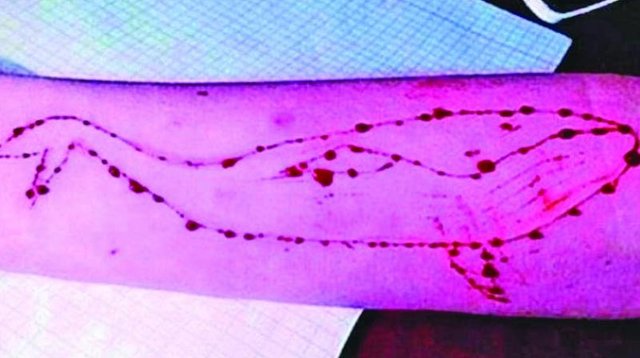

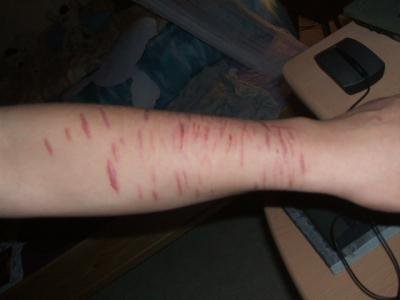


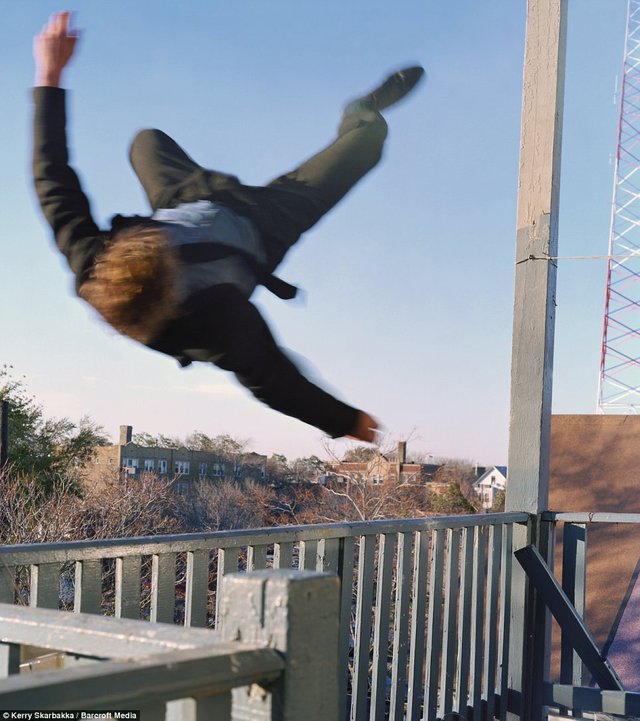



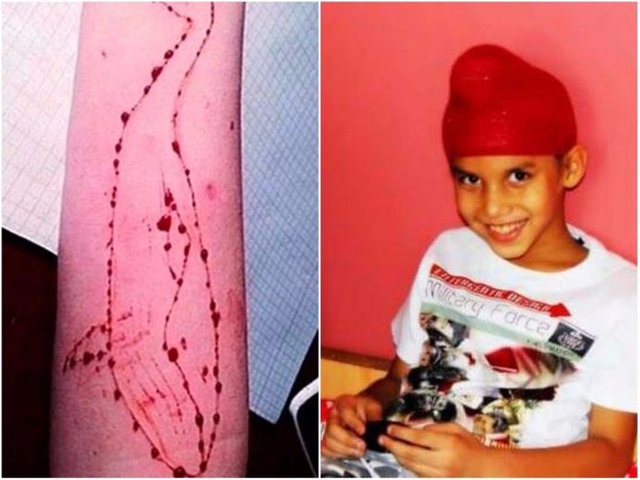
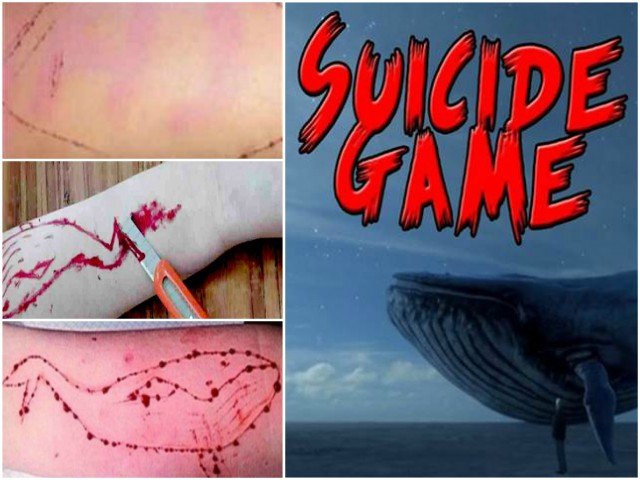

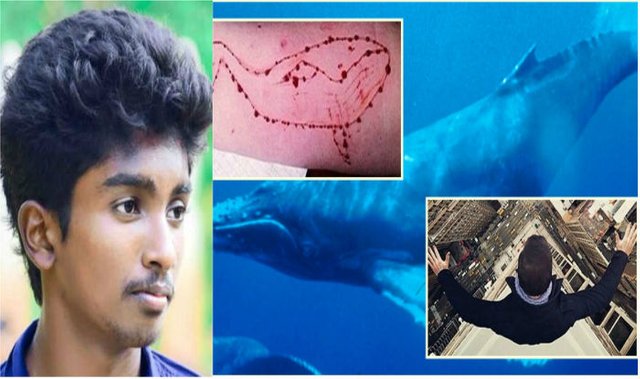
Resteemed your article. This article was resteemed because you are part of the New Steemians project. You can learn more about it here: https://steemit.com/introduceyourself/@gaman/new-steemians-project-launch